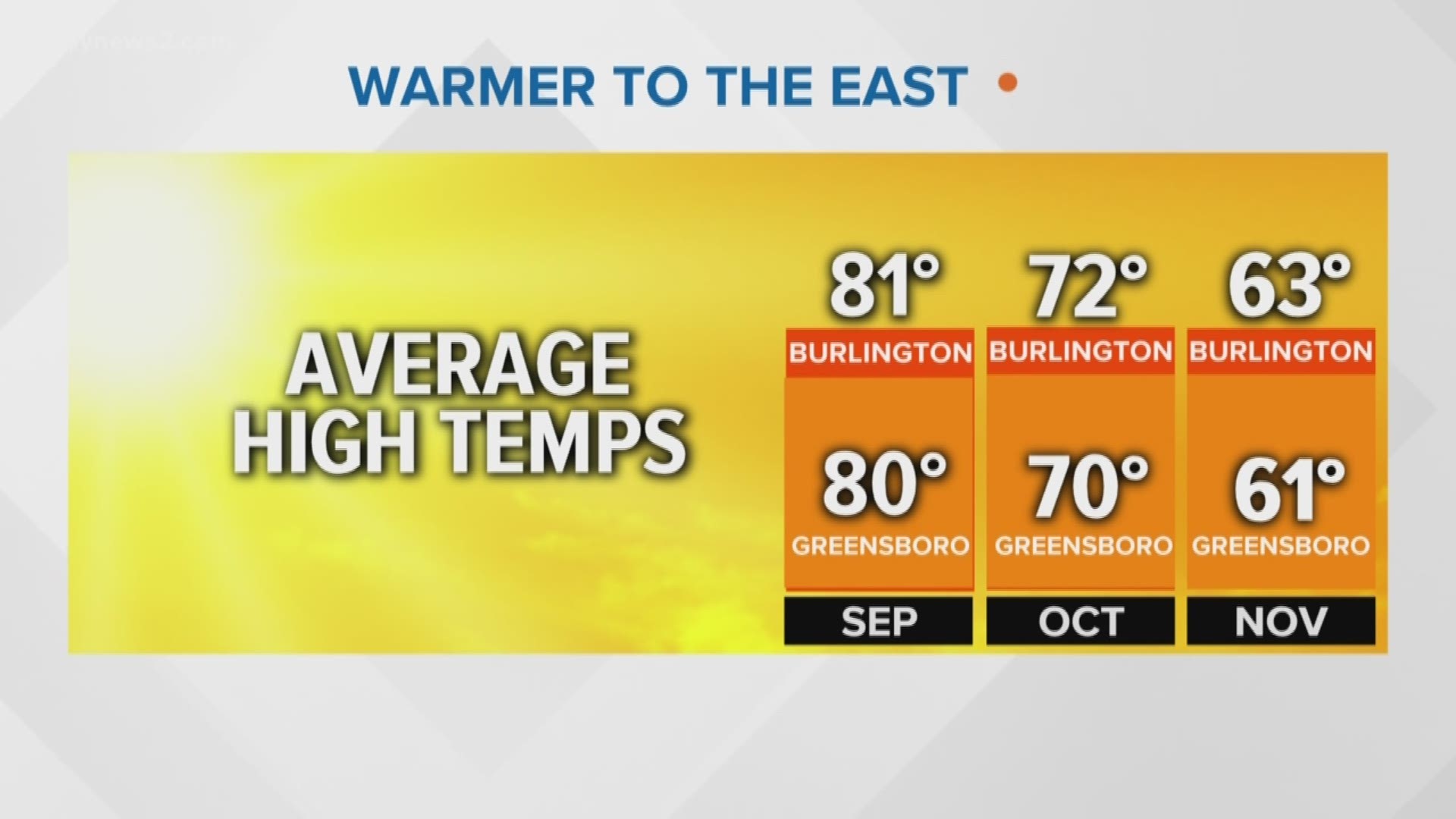GREENSBORO, N.C. — It's a subtle but consistent trend, and a Good Morning Show viewer attuned to weather forecasts just happened to notice.
VERIFY QUESTION
Stephen Dell asked, via e-mail, "Question for your meteorologist: why is Burlington consistently warmer than surrounding areas?"
VERIFY SOURCE
- Meteorologist Eric Chilton
VERIFY PROCESS
Chilton confirmed Burlington is, indeed, consistently warmer than surrounding cities due to placement of the temperature instrumentation and the elevation of the city.
"So, North Carolina's geography changes from west to east with the higher elevations to the west and the ocean to the east. As you drop in sea level, your temperature can go up accordingly. It may not sound like much of a difference, but I found that on average, Burlington is a degree or two warmer than even Greensboro," Chilton said.
For example, in September, October and November, Burlington averages high temperatures of 81, 72 and 63, respectively. Greensboro averages 80, 70 and 61, respectively.
"Even though it's a short distance (between Burlington and Greensboro), there can be a slight difference."
VERIFY CONCLUSION
Yes, Burlington and other cities to the east in NC are generally warmer than those to the west.
Do you have a VERIFY inquiry? Submit a post or selfie video to Meghann Mollerus via:
Facebook: Meghann Mollerus News
E-mail: Mmollerus@wfmy.com
Twitter: @MeghannMollerus

